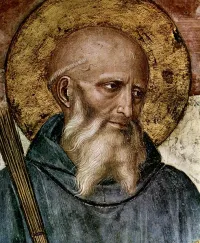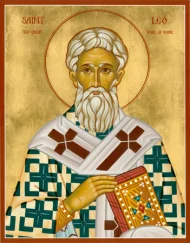 There are two loves from which proceed all wishes, as different in quality as they are different in their sources.
There are two loves from which proceed all wishes, as different in quality as they are different in their sources.
For the reasonable soul, which cannot exist without love, is the lover either of God or the world.
In the love of God there is no excess, but in the love of the world all is hurtful.
Therefore we must cling inseparably to eternal treasures, but things temporal we must use like passers-by.
Accordingly, as we are sojourners hastening to return to our own land, all the good things of this world which meet us may be as aids on the way, not snares to detain us.
[…] But as the world attracts us with its appearance, and abundance and variety, it is not easy to turn away from it unless in the beauty of things visible the Creator rather than the creature is loved.
When He says, “thou shalt love the Lord thy God from all thy heart, and from all thy mind, and from all thy strength” He wishes us in nothing to loosen ourselves from the bonds of His love.
And when He links the love of our neighbour also to this command, He enjoins on us the imitation of His own goodness, that we should love what He loves and do what He does.
For … in all things He requires our ministry and service, and wishes us to be the stewards of His gifts, that he who bears God’s image may do God’s will.
For this reason, in the Lord’s prayer we say most devoutly, “Thy Kingdom come, Thy will be done as in heaven, so also on earth.”
What else do we ask for in these words but that God may subdue those whom He has not yet subdued, and as in heaven He makes the angels ministers of His will, so also on earth He may make men?
And in seeking this we love God, we love also our neighbour. And the love within us has but one Object, since we desire the bond-servant to serve and the Lord to have rule.
This state of mind, therefore, beloved, from which earthly love is excluded, is strengthened by the habit of well-doing, because the conscience must needs be delighted at good deeds, and do willingly what it rejoices to have done.
Thus it is that fasts are kept, alms freely given, justice maintained, frequent prayer resorted to, and the desires of individuals become the common wish of all.
Labour fosters patience, gentleness extinguishes anger, loving-kindness treads down hatred, unclean desires are slain by holy aspirations, avarice is cast out by liberality, and burdensome wealth becomes the means of virtuous acts.
Leo the Great (c.400-461): Sermon 90, 3-4.









